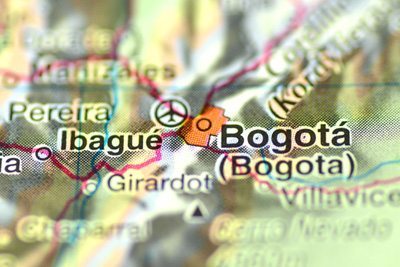My Experience With Fundación Oriéntame in Bogotá: A Model for Reproductive Care in Latin America
Spending time at the Bogotá women’s clinic helped to reinforce how important it is for women to have access to safe and friendly reproductive care, including abortion services. I saw first-hand how this saves lives.

As I start my last semester of a Women’s Health and Adult Primary Care Nurse Practitioner program, I can’t help but look back at 2013 and realize how one of the best experiences I had last year was working with Fundación Oriéntame in Bogotá, Colombia. Oriéntame is an incredible women’s clinic, and one of the two main nonprofit clinics in Bogotá that provide legal abortion services.
I was raised in Argentina, where, in theory, abortions are legal when the life of the pregnant person is at risk, or in cases of rape or incest. In practice, there are so many barriers that practically all abortions are being done clandestinely. I don’t know of any clinic openly providing abortion care in Argentina. Despite the fact that, according to a 2010 report, roughly 40 percent of pregnancies end in an abortion, I don’t recall people around me talking openly about it, I don’t remember having conversations about how important reproductive services are, and I remember thinking as a teenager that there were probably more important issues to address.
I came to the United States for college and went to a Jesuit institution, where I started thinking about what happens to women when reproductive services are not made available to us. I decided to become a nurse practitioner after volunteering with a free clinic for women and seeing first-hand the importance of ensuring access to these services.
As I began thinking about women’s health, working with women, and going through my nurse practitioner program, I realized how essential it is for women to have full control over their reproductive health, including the ability to plan their pregnancies. I look at Argentina now and realize how far we still have to go. So when I learned about Oriéntame’s work in Colombia, I jumped at the opportunity to spend some time at their clinic helping out with a small research project and getting to see how they work. I was hoping to see a model of how abortion services are being provided in another Latin American country, with laws that are very similar to those of Argentina. Since practically all abortions in Argentina are carried out underground, I wanted to see how things are being done differently in Colombia. I also wanted to learn more about how Latin American countries can work together to ensure that all of our communities have access to high quality reproductive care, so that all of us can plan our pregnancies and take more control over our own lives.
Oriéntame has been providing comprehensive reproductive health services for 36 years, and has been performing abortions since 2006, when Colombia legalized the procedure in situations when pregnancy puts the health of a woman at risk, in cases of rape or incest, and when a fetal malformation is incompatible with life. The clinic provides comprehensive services for women facing an unwanted pregnancy, seeing patients as a whole and addressing their psychosocial as well as medical needs.
While abortion services in Colombia are legal in the three instances mentioned above, women still face many barriers in accessing these services. Most abortions are still being performed clandestinely. Most public hospitals still have a strict interpretation of risk to the health of the woman; women don’t always know that they can access these services legally; and many live very far away from clinics like Oriéntame, or feel they do not have the financial resources necessary for the procedure and are unaware of the financial assistance available to them.
In my conversations with patients, I heard about many of the problems they faced accessing abortion services, the judgment they experienced or feared from friends and family members, the distance they had to travel (many of them had to travel more than ten hours by bus to get there), and the misinformation they had previously received. Some of the women talked to me about previous experiences they, or their friends and family members, had with clandestine clinics. Women are often approached in the street, offered free pregnancy tests, and then roped into having an abortion in these back-alley clinics. Such clinics provide, at best, clean procedures done without any accountability, counseling, adequate recovery, or follow-up, and, at worst, procedures that result in incomplete or septic abortions that put the lives of women at risk.
Some women in Oriéntame spoke about how grateful they were simply to know they would not die during the procedure. I was so happy to see how the staff at the clinic tries to normalize the experience, and makes women feel comfortable with the care they are receiving.
Spending time in Oriéntame helped to reinforce how important it is for women to have access to safe and friendly reproductive care, including abortion services. I saw first-hand how this saves lives. Clinics like these also play an important role in destigmatizing abortion, not only for their patients, but also for every single person who walks in front of the clinic and sees that it looks like any other medical office. I can only hope that Argentina will one day have a clinic like Oriéntame.

